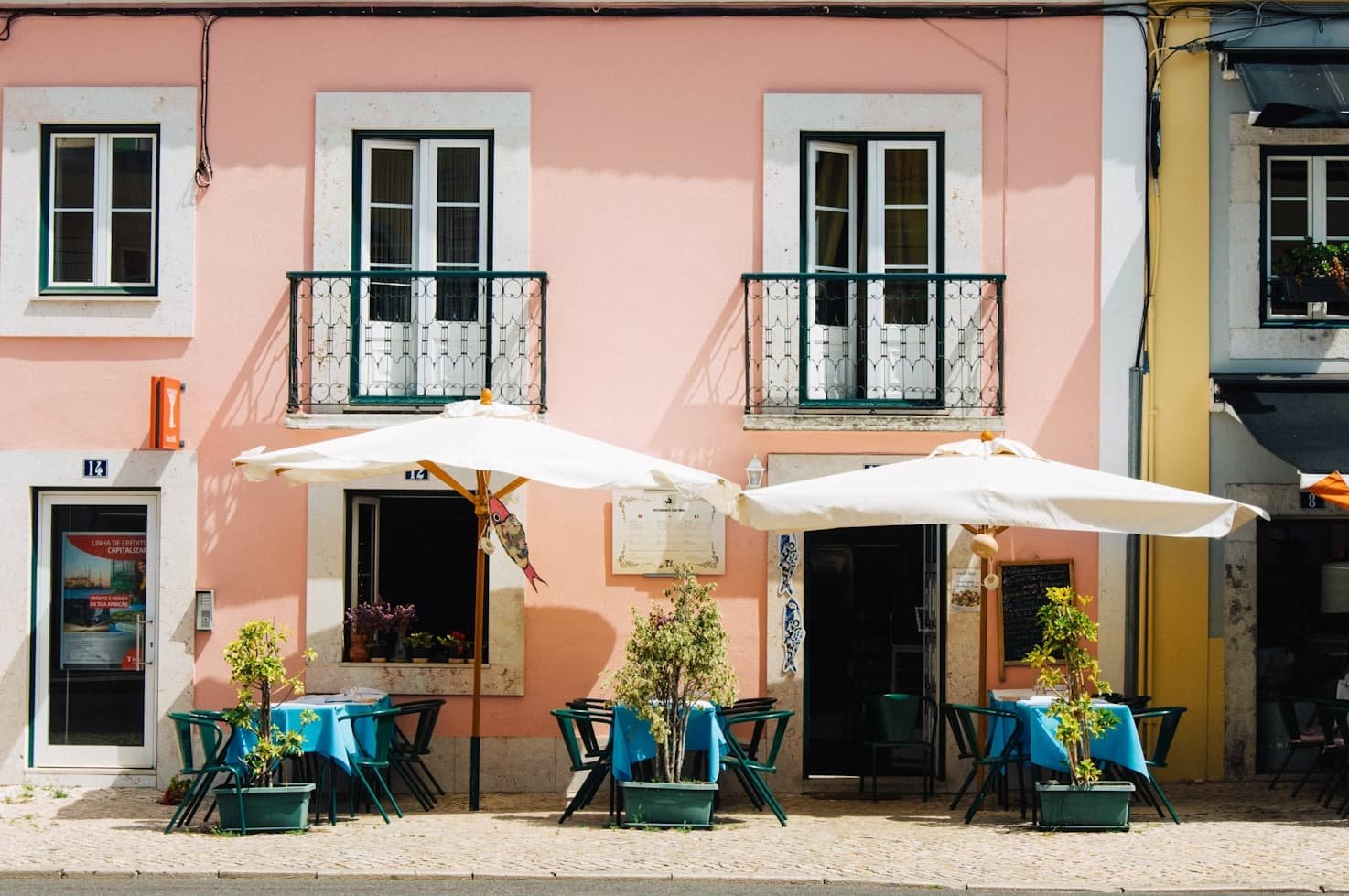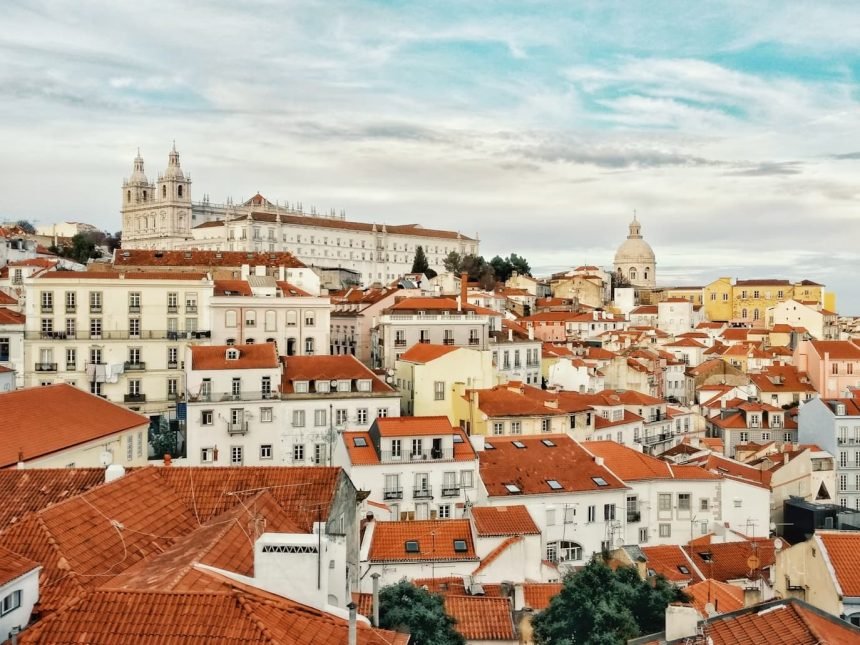So, you want to move to Portugal? Here are 12 steps. Knowing where to start when planning to relocate to Portugal can be daunting. In this article, we’ll guide you on how to prepare for traveling to Portugal.
Portugal’s stunning beaches, rich history, and delicious cuisine have captured the hearts of many. If you’re dreaming of a life basking in the Portuguese sun, this guide is for you! Here’s a 12-step roadmap to help you navigate your move to Portugal.
Want to Move to Portugal? Here are 12 Steps
1. Check your Eligibility
Portugal offers various visas for relocation. So you need to look at the different visa application requirements versus their eligibility criteria. This helps you to begin preparing the right way.
On some occasions, it’s possible to be eligible for two visas. So, you should also consider if you would want to stay in the country indefinitely and how you’ll maintain eligibility during renewal.
That said, you can pick from any of the following visa options:
- Sponsored work visa for people who will be working with Portuguese employers. Ideally, your employer will present this visa option to you.
- Study visa
- Family Reunification visa
- Golden Investor visa
- D7 Passive income visa that applies to those who have some passive income.
- Digital nomad visa for remote workers and freelancers.
Read: Explore a comprehensive guide on the visa types that Portugal offers.
2. Look at your Work Options
If you’ll be staying in Portugal for a long time, you need to be certain of your income. Most long-term visas require you to maintain your income. However, a visa like the Digital nomad visa already has your income eligibility upfront. So you need to be sure you’ll earn that amount or higher.
The D7 Passive income can be applied to using your passive income such as pension and more. But we also recommend you consider some type of temporary or permanent employment to aid your stay.
Beyond that, if you’re moving to Portugal as a remote worker, you’ll need to pay attention to the work ethics surrounding your visa option. For instance, on the digital nomad visa, you won’t be allowed to work for any Portuguese employer. So you want to look at your income in the long run before picking your visa.

3. Look at your Savings
Every visa option needs you not just to demonstrate how you’ll take care of yourself but have sufficient income saved up. If you’re not up on your savings, to the required minimum, your visa application might be rejected. That said, the cost of living in Portugal is remarkably cost-effective.
Apart from your accommodation needs, you can live comfortably on 2000 – 3000 Euros per month. Plus, most minimum requirements for popular visa types are lower than that.
4. Prepare for the Fees
You also need to be prepared for the fees you’re going to pay. Although you don’t need to pay your 1-year accommodation fees, when relocating to Portugal, you’ll need to make the first month’s rent and deposit. You’ll also deal with visa fees, shipping fees, and international flights.
There are also the fees for getting to and fro the bank, utilities office, and applications for residence permits. This is why you also need to know your financial situation before you apply for any visa.
5. Job Hunting (Optional)
If seeking employment, research job markets and required qualifications. Network with professionals in your field and explore job boards or connect with recruitment agencies. Remember the job market in Portugal can be pretty competitive.
Plus, European companies are obligated by law to consider people there before anyone else. So if you wish to relocate to Portugal using the expat visa, you should start applying to companies right away.
A very good recommended option is working for a company that has extensions in Portugal. That way you can apply to be sent there.

6. Plan your Accommodation
You’ll need a 1-year rental lease agreement to apply for your long-stay Portuguese visa.
Surprisingly, you don’t have to pay for the entire year. Only pay for the first month and deposit to get this done. We recommend walking with an immigration lawyer or real estate agent to avoid all kinds of scams.
That said, you need to consider the lifestyle you want to have when in Portugal. Usually, this would determine where you’re going to stay. Would you tolerate the cobblestones and rugged strenuous walks in the Alfama neighborhood of Lisbon? Or do you wish to reside in the suburbs of Duoro Valley? Or do you wish to stay in the fairytale atmosphere of Sintra?
Beyond that, there are also other amenities you want to consider, such as cafes, restaurants, schools, beaches and more. You need to make a list of what you want and can do without. This helps you pick the right place in Portugal. Fortunately, you can always break the lease and get a new one, although it might mean losing your deposit.
7. Plan your Healthcare and Insurance Needs
Portugal boasts a well-regarded public healthcare system. You should note that public healthcare system is free for residents. However, as an immigrant, you’ll likely need private health insurance. Research how to enroll and explore private health insurance options for additional coverage.
8. Prepare for Bureaucracy
Moving involves paperwork. Familiarize yourself with residence permits, social security registration, and utility connections. Consider seeking guidance from immigration specialists. If you also plan to drive in Portugal, you need to be aware of the local rules and regulations. The minimum age for driving is 18 years old and seatbelts are mandatory. The speed limits is generally, 50km/h in cities, 120km/h on highways and 90km/h on rural roads. You might need documents such as your valid driver’s license, vehicle registration and insurance.
Beyond that, you should also consult with your local Portuguese consulate or diplomatic mission to figure out the kind of belongings you can bring with you.
9. Apply for your Visa
Once you’re confident in your finances and visa type, you should apply right away. Ensure to give yourself plenty of time to gather your documents, make the appointment, and get all the paperwork together. Usually, you might need to certify or authenticate some documents. On average, you should give yourself 1-3 months to go through the entire visa application process. However, the Portuguese Golden visa might take longer – up to 3 to 6 months.
10. Start Learning Portuguese
English is widely spoken in many tourist areas such as Lisbon and Porto. But you need basic Portuguese to register at the tax office, utilities, banks, and even converse with your Landlord.
Knowing basic Portuguese will go a long way. Fortunately, there are many ways you can enroll in language classes to grasp everyday Portuguese.
Besides learning the language, you should also immerse yourself in Portuguese traditions. Look for virtual and physical resources about Portuguese culture. Learn about Portuguese history and customs to connect with your new community.
11. Open a Bank Account
Having a Portuguese bank account is vital to getting your residency permit in Portugal. However, getting a bank account would begin with obtaining the Portuguese tax number (Numero de Identificacao Fiscal, or NIF).
The NIF number requires a convoluted process. We recommend sparking on your immigration lawyer to help you choose the right fit and accelerate the process, even before you arrive in Portugal.

12. Start Packing
Now it’s time to start packing your belongings. You might need to obtain a Certificado da Bagagem (Luggage Certificate) from your local consulate or diplomatic mission by providing an inventory of your belongings. Plus, it’s easy to ship your belongings to Portugal. You should pick sea freight over air freight cos it’s more affordable. However if you choose Sea freight, your belongings might arrive weeks after you’ve travelled to Portugal. Make sure to research the moving and storage company near your intended location to move and possibly store your belongings with ease.
Bonus tip: Build your Community
Don’t wait to move to Portugal to start building your network. Although you should expect that the Portuguese won’t treat you as a friend or family right away, you want to connect with people from similar backgrounds.
Look out for expat groups and clubs to connect with other immigrants. This can ease the transition and provide a valuable support network. Fortunately, many parts of Portugal like Lisbon, Sintra, and Porto have great digital nomads and expat communities.
Concluding Thoughts
Now this concludes our article on “Want to Move to Portugal? Here are 12 Steps. Moving is of course stressful. But Portugal awaits! Embrace the adventure.
Be patient with the process, and savor the experience of building a new life in this beautiful country. So, what are you waiting for? With careful planning and a touch of adventure, Portugal could be your new home!






